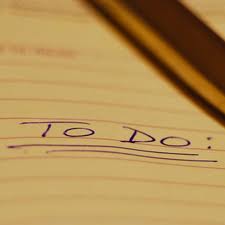Saturday was the last day for this year's June session of Camp Nanowrimo. While I can't call this successful in the traditional sense (I didn't hit 50K words) I learned so much about my writing that it's hard to consider it a failure.
So here is what I learned from trying to write 50K words in a month.
1. I can't write just anywhere.
Apparently there are people out there who can write in any location so long as they have pen and paper. I've read blog posts of folks who write on the subway, while walking on the treadmill and during their kids swim practice. Unfortunately, I am not one of those people. I tried to utilize a crazy amount of time riding in the backseat of the family van to get a huge head start on my word count. It didn't work. All cramped up surrounded by luggage and bags of snacks, I was in a writing black hole.
While this was bad for my progress this month, it helps me to know that setting is really important for me when I'm writing. My most productive sessions come when I am camped out in my over-sized chair in the quiet family with the kids taking a nap. Getting two kids to sleep at the same time isn't going to last long and it won't happen every day. This means sneaking in sessions during other times. But it's good to know where the sweet spot is.
2. I will never be a pantster again.
For this novel I tried something new. I started out by writing a couple pages of everything I knew about the novel I wanted to write. This included everything from the characters and setting to major plot points and world building. It wasn't in any kind of format and it probably wouldn't make sense to anyone but me. From there, I used the Save the Cat beat sheet.
Seriously life changing. Next I started a rough outline based on the beats from my sheet. I only outlined the first few just to get the ball rolling. This let me have a clear direction but didn't feel like I was fencing myself in.
Whenever I got close to finishing the current outline, I would stop writing and outline the next few scenes. That way I never started or ended a writing session without knowing what would come next. With the anxiety of not having something to write taken care of, I've been able to spend less time staring at a blank page.
I don't think I can ever be like my critique partner, Christi Snow (who by the way has a
fabulous book that just came out this month). She has a massive binder for every book. Inside is a scene by scene outline that is completely fleshed out before she puts the first word down on paper. It's amazing. And it works for her since she used the Camp Nanowrimo to finish the second book in her series. My process is a little more willy nilly, but I think it's working.
3. Accountability is awesome
I already knew this one, but Camp really brought it home. Accountability is one of the reasons I write this blog. I tell all of you what I'm doing and then if I don't do it, I have to tell you. You'd think that wasn't a big deal since most of you I've never met in real life, but I hate it. Even when I was a kid, my parents being disappointed in me was the worst punishment imaginable.
I wrote my first full-length book in silence. I told no one what I was doing. Only The Professor knew, and he only had a vague idea of what writing a book meant (this hasn't really changed). It's no wonder it took me seventeen months to finish it. But now, I have people who know what I'm doing. People who will ask, "How's your book coming along?". Part of that makes me really uncomfortable. All those people to disappoint. But the other part of me knows this helps to keep me on track.
4. I can write fast
So my word count doesn't really explain this one, but it's true. One of the great things about the writing program I'm using (
yWriter) is that it tracks how many words you write daily. This has been a great reference tool. I ended the month at 20109 words. which isn't bad for a normal month. But the most interesting part is that I wrote almost 15K of those in the last eight days. It's still not the most amazing number, but it's not bad either. It gives me a little hope that I can survive Candace Haven's Fast Draft class next month.
There are so many other things I learned this month, but this blog post is already getting a little long. So what about you? Did you participate in Camp Nanowrimo? What did you learn about yourself or your writing? As always, I'd love to hear from you.
And in case you're wondering, I finished Camp Nanowrimo at 20K words. Not too shabby.


.jpg)



























